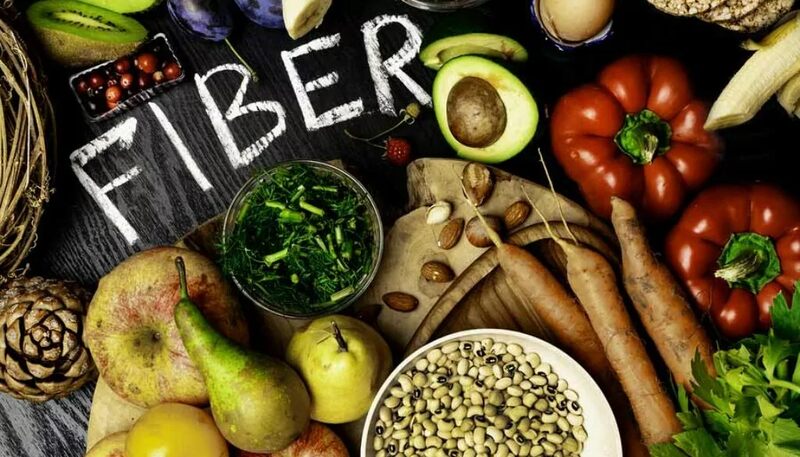To lessen cholesterol levels and enhance heart health, it is very important to keep a diet that supports a good cardiovascular system. High cholesterol poses a major threat to heart problems, which still ranks among the main causes of death worldwide. A diet made up of food good for the heart can aid in lowering cholesterol levels, decreasing chances of getting sick from heart disease, and also bettering the general state of health. Moreover, this article presents different recipes that are created for decreasing cholesterol and giving benefits to heart health. It provides you with useful and tasty methods to back up your cardiovascular system.
The Role of Fiber in Lowering Cholesterol
Fiber is very important for reducing cholesterol and helping the heart. It helps by sticking to cholesterol in the stomach, making it possible to get rid of it from our body. Foods with lots of soluble fiber are oats, barley, beans, and lentils as well as fruits and vegetables. Adding these foods to your regular diet can make a big difference in managing cholesterol. For example, a breakfast bowl of oats with fresh berries and some nuts not only gives you a tasty beginning for your day but also loads up on fiber that helps reduce cholesterol levels.

Apart from soluble fiber, there is another kind called insoluble fiber which you can find in whole grains, nuts, and vegetables. This type of fibre helps with digestion because it increases the size or bulkiness of your stool making it easier to pass through your intestines. It helps in regular bowel movements and prevents constipation. By adding both types of fiber to your diet you are getting a balanced approach for managing cholesterol as well as maintaining good digestive health overall.
- Daily Intake: Aim for at least 25-30 grams of fiber daily for optimal heart health benefits.
- Hydration: Increase water intake when consuming more fiber to help it move through the digestive system efficiently.
Incorporating Healthy Fats into Your Diet
For your heart's well-being, not every fat is the same. Unsaturated fats, like avocados or olive oil and also nuts or seeds, help to lessen levels of low-density lipoprotein (LDL) cholesterol frequently called "bad" cholesterol. Making a change from saturated fats found in butter and red meat to unsaturated fats can be quite beneficial. For instance, a switch to using olive oil in your cooking and for dressing salads can boost the nutritional worth of your meals and also be beneficial for heart conditions.
In addition, adding sources of omega-3 and omega-6 fatty acids is a good idea. These fats are known as polyunsaturated fats and they can bring more advantages for the cardiovascular system. They help in reducing inflammation and enhancing the working of blood vessels. Eating fatty fish, flaxseeds, and walnuts regularly can guarantee an appropriate supply of these helpful fats which also assist in maintaining heart wellbeing.
- Moderation: Use healthy fats in moderation to maintain a balanced calorie intake.
- Variety: Include a variety of fat sources to get a mix of essential fatty acids.
Emphasizing Plant-Based Proteins
Proteins from plants are good for the heart because they have less saturated fat in comparison to animal proteins. Foods like beans, lentils, tofu, and quinoa not only give protein but also contain fiber and other important nutrients. A bowl of thick lentil soup, besides making you feel warm inside, can provide a solid amount of both fiber and protein without giving any cholesterol coming from animal items. Adding more plant-based meals to your eating plan can reduce cholesterol and lower the possibility of heart sickness.
Moreover, proteins from plants typically have phytochemicals and antioxidants that are good for your health. Foods such as chickpeas, black beans, and soy products have compounds that can enhance the function of blood vessels while decreasing inflammation. Trying out various recipes based on plants can be a simple way to vary your diet and relish the numerous health advantages these foods bring along with them.
- Protein Needs: Ensure you meet your daily protein needs by incorporating a variety of plant-based sources.
- Cooking Methods: Opt for healthy cooking methods like steaming, baking, or grilling to maintain the nutritional value of plant-based proteins.
The Benefits of Omega-3 Fatty Acids
The type of fat called omega-3 fatty acids, which you can get from fish that is oily like salmon, mackerel, and sardines or from plant-based foods such as flaxseeds and walnuts, has been proven to decrease triglycerides (a kind of fat in the blood) and decrease chances for heart disease. Having meals with food full of omega-3s can help keep your heart healthy in numerous ways. For example, a dinner meal made up of grilled salmon along with some boiled vegetables and quinoa serves as an even-balanced dish packed with good-for-heart omega-3s plus fiber.
Also, omega-3 fatty acids are beneficial for decreasing inflammation and enhancing the function of arteries. This can help in stopping the growth of atherosclerosis. If you put different types of omega-3 sources into your food like chia seeds, it assists in having a balanced intake of these necessary fats and this contributes to maintaining good heart health over time.
- Supplement Consideration: Consider omega-3 supplements if you don't consume fish regularly.
- Storage: Store omega-3-rich foods properly to prevent them from going rancid and losing their nutritional benefits.
Antioxidant-Rich Foods for Heart Health
Antioxidants have an essential part in safeguarding the heart from oxidative stress and inflammation, both factors that could lead to heart ailments. Foods like berries, dark chocolate, green tea, and leafy greens are full of antioxidants supporting heart health. You can try making a smoothie with spinach, kale, and mixed berries, and also add some green tea for taste. This drink may be refreshing while giving you many nutrients from these ingredients which help protect your heart against harmful effects caused by oxidation or inflammation.

Additionally, there are antioxidants such as vitamin C, vitamin E, beta-carotene, and selenium present in different fruits and vegetables that assist in balancing free radicals within the body. Making a habit of eating foods with a variety of colors that have high antioxidant levels can improve your body's protection against oxidative harm while promoting good heart health.
- Seasonal Choices: Choose seasonal fruits and vegetables to get the freshest and most antioxidant-rich produce.
- Combination: Pair different antioxidant foods to maximize their benefits through synergistic effects.
Reducing Sodium Intake
A lot of sodium in your diet is connected to high blood pressure, which is a very big risk for heart sickness. Lowering the amount of salt you consume might assist with managing your blood pressure and looking after the health of your heart. A good approach to do this is choosing fresh, unprocessed foods instead of those that have been made ready for eating and packed up. When you cook yourself, it's possible to control how much salt is utilized. For instance, creating a vegetable stir-fry at home and using fresh herbs plus spices instead of shop sauces could lessen your sodium intake greatly while improving the taste and nutritional worth of your meals.
Also, if you read nutrition labels and know about the hidden sodium in different foods, it will help you control your intake better. A lot of processed foods have lots of sodium even if they don't taste very salty. If you start to pay more attention to these sources and select low-sodium substitutes, it could make a noticeable difference in your heart health.
- Label Reading: Check labels for sodium content, aiming for less than 2,300 mg of sodium per day.
- Flavor Alternatives: Use herbs, spices, and citrus to flavor foods instead of salt.
Conclusion
To sum up, if you use heart-healthy recipes and think carefully about what you eat, it could help in decreasing your cholesterol levels as well as improving your heart health. By concentrating on foods that contain lots of fiber, good fats, protein from plants also omega-3 fatty acids along with antioxidants through different types of cuisine while lowering sodium consumption. These changes can create an organized yet tasty diet to assist the well-being of your heart. This article gives real-life recipes and understanding for achieving these objectives and relishing a lifestyle that benefits the health of one's heart.






